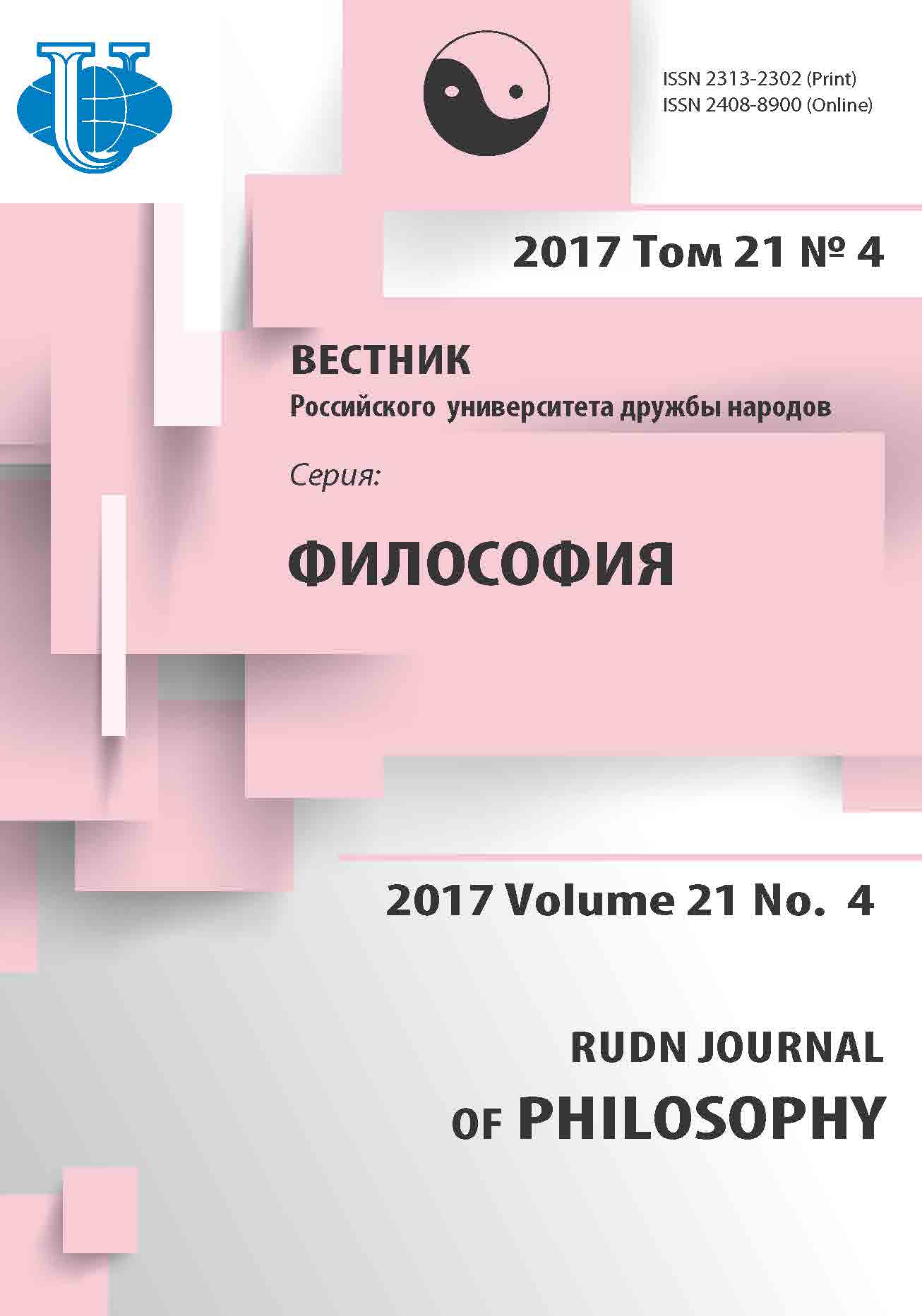THE IDEOLOGICAL DISTURBANCE OF VIETNAM CONFUCIANITY IN THE XVI-XVIII CENTURIES
- Authors: Nguyen a.D.1
-
Affiliations:
- RUDN University (Peoples’ Friendship University of Russia)
- Issue: Vol 21, No 4 (2017)
- Pages: 621-627
- Section: Articles
- URL: https://journals.rudn.ru/philosophy/article/view/17673
- DOI: https://doi.org/10.22363/2313-2302-2017-21-4-621-627
Cite item
Full Text
Abstract
In the 16-18th centuries there was a large number of cardinal changes in the political and socio-economic life of Vietnam. Confucianism as a political doctrine proved powerless to ensure the stability of centralized power, its position and dogma were already unconvincing for the society. Since Confucian values lost their brilliance, therefore, Confucian scientists required some actions that could lead to the restoration of former positions and the role of Confucianism among the ruling elite of the feudal system and in the society of that era.
Keywords
About the authors
an Duong Nguyen
RUDN University (Peoples’ Friendship University of Russia)
Author for correspondence.
Email: hphilosophy@mail.ru
Нгуен Ван Зыонг - аспирант кафедры истории философии факультета гуманитарных и социальных наук Российского университета дружбы народов
6, Miklukho-Maklaya Str., 117198, Moscow, Russian FederationReferences
- Duong Hong. A Short Version of the Four-Stone. Hanoi: Publisher «Social sciences»; 2002. (Dương Hồng (biên dịch). Tóm tắt tứ thư. Nxb khoa học xã hội. Hà Nội, 2002.)
- Le Quy Don. The Full Chronicle of Dynasties. In 4 vol. Vol. 4. Hanoi: Publisher «History»; 1962. (Lê Quý Đôn. Lịch triều hiến chương loại chí, tập 4, Nxb Sử học, 1962.)
- Nguyễn Tài Thư. Some Theoretical Issues on the History of Vietnamese Thought. Hanoi: Publisher «Institute of philosophy»; 1984. (Nguyễn Tài Thư. Một số vấn đề lý luận về lịch sử tư tưởng Việ t Nam. Viện Triết học xuất bản. Hà Nội, 1984.)
- Ngo Thi Si. Notes from the Cave of Nhi Thanh. Collection of Poems Written in the Cave Nhi Thanh — Lang Son, 1870. (Ngô Thì Sĩ. Ký động nhi thanh. Tập thơ làm ở động Nhị Thanh-Lạng Sơn, 1780).
- Nguyen Kim Son. Three Religious Trends in the Integration of Vietnamese Thought in the 18th Century. Journal of Religious Studies. 2007;(8). (Nguyễn Kim Sơn. Xu hướng hội nhập Tam giáo trong tư tưởng Việt Nam thế kỷ XVIII. Hà Nội. Tạp chí nghiên cứu tô n giáo, số 8/2007.)
- Nguyen Đang Thuc. History of Vietnamese Thought. In 5 vol. Vol. 1. Ho Chi Minh: Publisher «Ho Chi Minh City»; 1998. (Nguyễ n Đăng Thục. Lịch sử tư tưởng Việt Nam. Nxb Tp. Hồ Chí Minh, 1998.)
- Nguyen Du. Collection of Strange Tales. Ho Chi Minh City: Publisher «Children»; 1988. (Nguyễn Dữ. Truyền kỳ mạn lục. Nxb Trẻ, TP.HCM, 1988.)
- Ngo Si Lien. Full Collection of Daiviet's Historical Notes. In 4 vol. Vol. 4. Hаnoi: Publisher «Social sciences»; 1968. (Ngô Sĩ Liên. Đại việt sử ký toàn thư, tập 4. Nxb khoa học xã hội. Hà Nội, 1968.)
- Phan Dai Doan. To the Question of Confucianism in Vietnam. Hаnoi: Publisher «National politics»; 1998. (Phan Đại Doãn. Một số vấn đề về nho giáo Việt Nam. Nxb chính trị quố c gia, Hà Nội, 1998.)
- Phan Thanh Gian. Approved by the Highest Command of the Universal Mirror of the History of Vietnam, the Basis and Particulars. Hanoi: «Education»; 1998 (Phan Thanh Giản (chủ biên). Khâm định Việt sử thông giám cương mục. tập 2 (Viện sử học Việt Nam phiên dịch). Hà Nội: nxb giáo dục, 1998.)
- Tran Trong Kim. Confucianism. Hanoi: Publisher «Culture — information»; 2008. (Trần Trọng Kim. Nho giáo. Hà Nội. Nxb: Văn hóa — thông tin, 2008.)
















